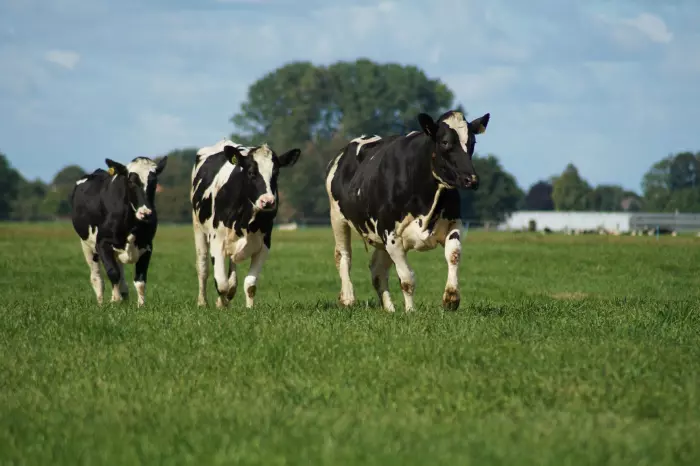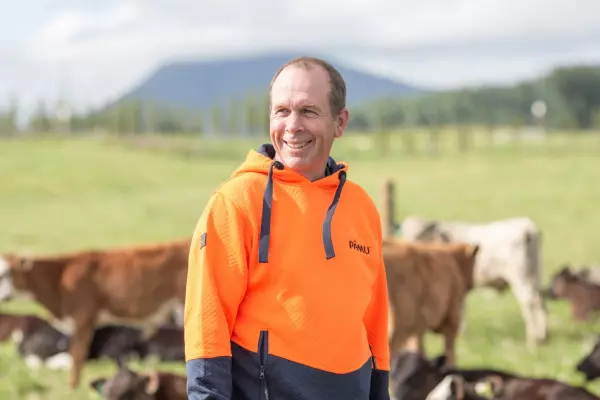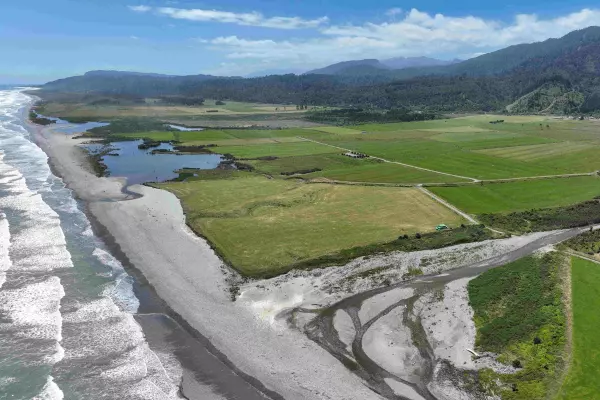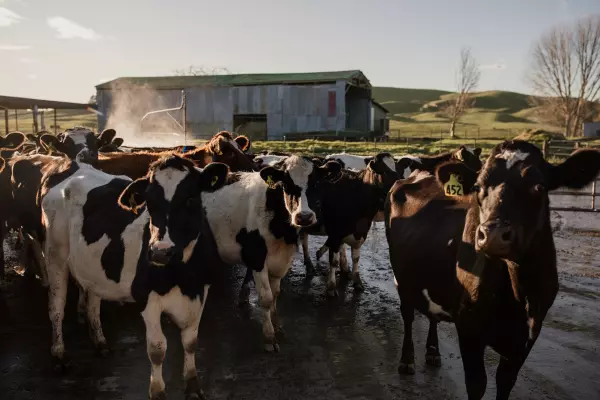Crown-owned farming company Pāmu said its financial performance for the June 2022 year was “very pleasing” given the economic and environmental difficulties that the agricultural sector had to deal with.
In its annual report released today, the largest farming group in New Zealand revealed high hopes for a “dynamic” 2023 period, but said it was “keenly aware of the risks that lie ahead”.
Chief executive Mark Leslie and chair Warren Parker said Pāmu benefited from high milk prices throughout the year and saw “continued buoyancy” from global markets when it came to red meat and forestry carbon credits.
It was also the reason that Pāmu reported earnings before interest, tax, depreciation, amortisation and revaluations (Ebitdar) of $75 million, up 23% on the previous year’s $61m.
Because of this, Leslie and Parker said the company was able to pay a $5m dividend, which was equal to 4 cents per share, which was paid on Aug 31. Pāmu has a target dividend of $10m for the 2023 financial period.
“The future is increasingly dynamic,” Leslie and Parker said in the annual report. “We will continue to vigorously pursue farming excellence and innovation, earnings diversification and a reduced environmental footprint and substantial carbon-emissions reduction."
Pāmu reported its annual result at the end of August, with the company achieving a net profit of $59m – more than double its profit of $29m the year before.
The increase in profit was due to an $18m book-value gain from the reversal of historical revaluation losses on land and buildings, as well as a $20m fair-value gain on biological assets.
The company’s revenue rose nearly 14% to $287m, largely from its livestock and dairy businesses and increased sales by Pāmu Foods.
Pāmu noted that this higher revenue helped offset the company’s rising costs and production constraints.
High volatility
Looking into 2023, Leslie and Parker said farm product prices remained under pressure. Operating costs would also continue to be impacted by high volatility in fuel, fertiliser and other prices and the company also had to keep up with meeting global demand.
The pair called climate change the “greatest long-term challenge” facing NZ’s food and fibre sector, as global consumers shift their dietary and lifestyle preferences and adopt different values on environmental and animal issues.
Pāmu plans to leverage its dairy expertise and connection to Asian markets to raise the company's farmgate profitability over time.
“The focus is on speciality milks with significant value added through production and processing being geared to customers' particular needs and preferences,” Leslie and Parker said.














